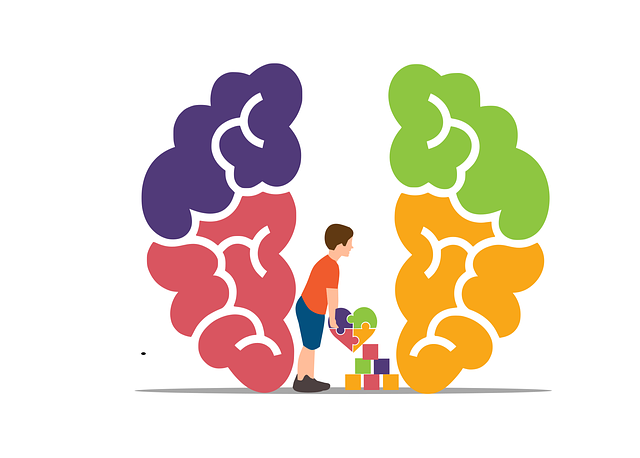Arvada Interpersonal Issues Therapy is an evidence-based approach to emotion regulation that empowers individuals to manage their emotional responses effectively. By addressing underlying interpersonal challenges and using techniques like mindfulness meditation, this therapy teaches clients to recognize, accept, and control emotions healthily. The structured framework combines proven strategies with conflict resolution and confidence-boosting activities, fostering resilience and improving relationships. These skills enhance mental well-being, revolutionize coping mechanisms, and assist professionals in client safety assessments, making Arvada Interpersonal Issues Therapy a powerful tool for navigating daily life's challenges.
Emotion regulation is a vital skill, enabling individuals to navigate life’s challenges with resilience. This article explores effective techniques and their profound impact on daily well-being. We delve into the significance of emotion regulation, particularly through the lens of Arvada Interpersonal Issues Therapy, which offers powerful tools for managing emotions. By understanding these strategies, folks can foster a healthier relationship with their feelings, leading to improved mental health and enhanced relationships.
- Understanding Emotion Regulation and Its Significance
- The Role of Arvada Interpersonal Issues Therapy in Teaching These Techniques
- Key Strategies for Effective Emotion Regulation
- Practical Applications and Benefits for Daily Life
Understanding Emotion Regulation and Its Significance

Emotion regulation is a vital skill that enables individuals to manage and understand their emotional responses effectively. It involves recognizing, accepting, and controlling emotions in healthy ways, ensuring they do not hinder personal growth or relationships. In today’s fast-paced world, where stress and interpersonal issues are prevalent, mastering these techniques is essential for maintaining emotional well-being. The impact of such practices extends beyond personal resilience; it can significantly contribute to the success of therapeutic interventions.
Arvada Interpersonal Issues Therapy, for instance, leverages Emotional Well-being Promotion Techniques to empower clients with the tools needed to navigate life’s challenges. By integrating these strategies into therapy sessions and even community outreach program implementations, professionals foster a deeper understanding of Mind Over Matter principles. This holistic approach not only enhances therapeutic outcomes but also encourages individuals to cultivate resilience, adapt to change, and maintain healthy relationships, ultimately improving their overall quality of life.
The Role of Arvada Interpersonal Issues Therapy in Teaching These Techniques

Arvada Interpersonal Issues Therapy plays a pivotal role in teaching emotion regulation techniques by offering a structured framework to address underlying interpersonal challenges. This therapeutic approach leverages the connection between our thoughts, feelings, and behaviors, focusing on how social interactions impact emotional well-being. Through Arvada Interpersonal Issues Therapy, individuals learn to identify and challenge negative thought patterns triggered by interpersonal issues, thereby fostering healthier coping mechanisms.
The process often involves guidance in mindfulness meditation and mental wellness journaling exercises, techniques proven to enhance emotional awareness and self-regulation. By combining these practices with the therapy’s structured approach, clients develop a comprehensive set of tools for managing their emotions effectively. This not only promotes individual emotional well-being but also equips them to navigate interpersonal relationships more constructively, creating a positive cycle of improved communication and reduced conflict.
Key Strategies for Effective Emotion Regulation

Emotion regulation is a crucial aspect of mental well-being, and teaching individuals effective strategies can significantly enhance their lives. At Arvada Interpersonal Issues Therapy, we focus on empowering clients with key techniques to manage and understand their emotions. One of the primary methods involves identifying and labeling feelings—a simple yet powerful tool that helps individuals recognize and accept their emotions without judgment. This awareness is the first step towards healthy expression and management.
Additionally, promoting emotional well-being requires a combination of conflict resolution techniques and confidence boosting activities. Learning to navigate interpersonal issues constructively can reduce emotional distress and foster healthier relationships. Boosting self-confidence enables individuals to face challenges head-on, making them more resilient in the face of difficult emotions. These strategies, when taught comprehensively, can revolutionize one’s ability to manage and thrive in various aspects of life.
Practical Applications and Benefits for Daily Life

The techniques learned through Arvada Interpersonal Issues Therapy can significantly enhance one’s ability to navigate daily life’s challenges with improved emotional regulation. This form of therapy equips individuals with practical tools, such as Compassion Cultivation Practices, to manage and understand their emotions effectively. By fostering self-awareness and empathy, these practices allow people to respond thoughtfully rather than reacting impulsively to stressful situations or interpersonal issues.
The benefits extend beyond therapy sessions, promoting better mental health and overall well-being. Effective emotional regulation can lead to improved relationships by enhancing communication skills and reducing conflicts. It also boosts resilience, enabling individuals to cope with life’s uncertainties and navigate transitions more smoothly. For mental health professionals, incorporating risk assessment techniques into their practice ensures they can accurately identify potential hazards and implement appropriate strategies for client safety.
Emotion regulation is a vital skill that significantly enhances daily life, fostering better mental health and interpersonal relationships. As highlighted, Arvada Interpersonal Issues Therapy offers an effective framework for teaching these techniques, empowering individuals to navigate their emotions constructively. By incorporating strategies like mindfulness, cognitive reappraisal, and acceptance, people can improve their emotional resilience and overall well-being. These skills are applicable across various contexts, from managing stress at work to fostering healthier relationships. Through practical application, individuals can experience positive changes in their lives, making emotion regulation a valuable asset in today’s fast-paced world.














